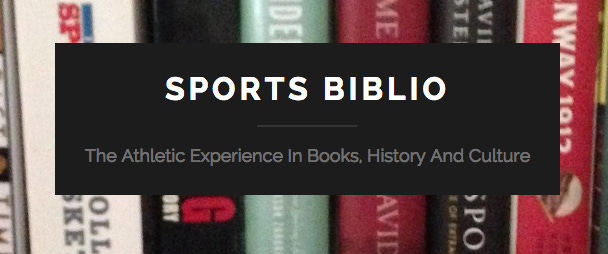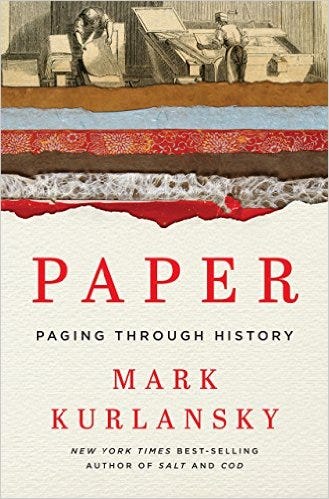Sports Biblio Digest, 6.19.16: Memories of England 1966

News, Views and Reviews About Sports Books, History and Culture
Also In This Issue: Sports, Labor and Money; Brooklyn Sports Photography Exhibit; Remembering George Lapides and Stephen Keshi
Welcome to the Sports Biblio Digest, an e-mail newsletter delivered each Sunday. You can subscribe here and search the archives.
This is Digest issue No. 44, published June 19, 2016. The Digest is a companion to the Sports Biblio website, which is updated every Monday, Wednesday and Friday. To view this newsletter in a browser, please click here.
I’d love to hear what you think about the Digest, and Sports Biblio. Send feedback, suggestions, book recommendations and requests for interviews to Wendy Parker, sportsbiblio@gmail.com. You can also follow Sports Biblio on Twitter and hit the “like” button on Facebook.
* * * * * * * *
As England took the field (pitch?) for its Euro 2016 opener last week, English native Ian Darke, calling the match for American viewers on ESPN, made the simple reference to “50 years of hurt."
He didn’t have to say much more than that. It’s been 50 years since England won its only soccer (football?) World Cup, on English soil, and England’s last major international tournament win also came at home, in Euro ‘96.
To commemorate (or commiserate?) England’s glorious run in the summer of 1966, culminating with Geoff Hurst’s hat trick in a 3-2 win over West Germany, publishers have been busy churning out plenty of books on the subject.
In “The Boys of 66,” John Rowlinson details how coach Alf Ramsey put together what became an historic team, out of a pool of 50 players. Given some of the criticism current coach Roy Hodgson is facing over his team selection, Rowlinson’s account, which is loaded with photos, is instructive now.
In a review of the book at When Saturday Comes, David Stubbs notes “how little” was made of England’s victory at the time, including “little press fanfare” before the tournament.
But that triumph—and Kenneth Wolstenhome’s famous “They think it’s all over now” remark on BBC—has become a haunting one for a half-century.
Darke’s phrase has been an often uttered one, and is the title of journalist Henry Winter’s “Fifty Years of Hurt.” Winter, now with The Times of London after many years at The Daily Telegraph, interviewed more than 40 players, coaches and others from the contemporary English soccer scene as well as fans, about what England must do to become world prominent once again. His verdict is free of sentiment or outward blame:
“It’s not Lady Luck being perfidious towards battered Albion. It’s self-inflicted damage. England’s arteries are blocked by addled thinking. Fault lies all around.”
In “England 1966-2016: A Journey Through 50 Years Of Hurt,” Khudael Ashraf explores similar terrain. His point of reference is Euro ‘96, so his affliction has lasted only 20 years.
Sir Bobby Charlton, one of the beloved members of that '66 team, has published his memoir, and writes movingly of his teammates who have long since passed and another, Nobby Stiles, who suffers from Alzheimer’s:
“My dearest wish now, at this late hour, is that I could still easily rekindle such emotion with each of the comrades with whom I shared that day of triumph.”
Peter Chapman was an 18-year-old fan celebrating England’s win that year. In “Out of Time: 1966 and the End of Old-fashioned Britain,” he delves into broader social, cultural and economic changes afoot in the United Kingdom of that time.
If all this wistfulness weren’t enough, The Economist, on its sports-related Game Theory blog, saw fit to chime in with a cold-blooded analysis based on advanced stats. While “the Three Lions are only ever a handful of games away from ending the rot,” the underachieving appears to be nowhere close to ending.
Sports, Money and Labor
This week on the blog I wrote about the professionalization and commercialization of sports in the post-World War II era, from a time when Victorian notions of amateurism prevailed to the multi-million-dollar contracts, television reach and celebrity status many top athletes and sports entities enjoy in what’s become a significant part of the entertainment industry.
These developments took quite a while to get started, especially in the Olympic movement, where paternalists like Avery Brundage worked hard to keep athletes “pure” from filthy lucre. After ending the medals program for artists and writers who dared to earn money some other way, he made it clear to American decathlon gold medalist Rafer Johnson that appearing in a bit role in the Hollywood film “Spartacus” would jeopardize his amateur status.
In American baseball, the lords of the pastime ruled over players with an iron fist until the late 1960s, when Marvin Miller, an economist with a steelworkers union, came on the scene. His hard bargaining prowess and resulting legacy opened the door not only for baseball players to become among the best-paid team athletes, but also for their counterparts in other North American team sports. It’s a scandal he’s not in the Baseball Hall of Fame.
In my latest book review, these subjects are explored by Matthew Futterman of The Wall Street Journal in “Players,” the first book to trace the origins of the modern sports business.
Futterman’s segue into his argument is Mark McCormack, who signed Arnold Palmer in 1958 in becoming the first full-fledged sports agent, and later created the massive IMG agency.
At a time when it’s hard to imagine if sports can get even more commercialized, “Players” is a useful guide to an era when what we see now was only starting to be imagined at all.
A Few Good Reads
With Britain’s referendum over European Union status coming this week, sports historian David Goldblatt wonders in The Guardian if the Euro 2016 tourney can provide a culturally unifying alternative to increasing political division on the continent;
At the Monocle, soccer and national identity are explored in podcast form with both the Euros and Copa America underway;
At Heritage Daily, a very deep dive into the cultural history of soccer—as far back as the Middle Ages—is the focus of research by Professor Wolfgang Behringer of Saarland University;

At the always-excellent Atlas Obscura, a story about someone I’ve never heard of before: Ella Black, who wrote about baseball during the 1890 season for The Sporting Life publication but whose non-sporting life remains a mystery;
At Golfweek, Adam Schupack writes about the new book about legendary instructor Harvey Penick;
At ESPNCricinfo, Nicholas Hogg (part of the Authors Cricket Club) ruminates on the sustaining familial pleasures of the game, from one generation to the next, even in the age of television.
Sports Book News and Reviews
On July 15, the Brooklyn Museum will open an exhibit “Who Shot Sports: A Photographic History, 1843 to the Present,” to coincide with photographic historian Gail Buckland’s massive new book project that’s being published at the same time. The exhibit features more than 200 photos from Buckland’s 344-page book and will continue through January 2017;
Bob Ryan and Hal McCoy are among the featured authors at the 5th annual Salisbury (N.C.) Sports Book Festival Sunday, sponsored by the National Sports Media Association;
At Eephus, the new sports vertical of the Los Angeles Review of Books, Patrick Sauer reviews “Federer and Me” by William Skidelsky of The Guardian (U.K.), and says that it draws some parallels to Frederick Exley’s “A Fan’s Notes,” which was about so much more than sports;

This is more than a doorstopper: the newly released 630-page “Springbok Opus” history of South African rugby weighs in at 77 pounds (35 kilos) and costs an astronomical $13,500. Only 100 copies of the leather-bound edition are being printed, making it among the mother of collectibles. There are less expensive print options mentioned in this piece, and you can get the Full Monty online for $5;
Anna Kessel argues for the creation of a literary canon for women’s sports, and at the British women’s sports site The Mixed Zone serves up her ideal booklist. Next week on Sports Biblio I will expand this idea with my own thoughts on books and media about women’s sports, and how I find so much of it wanting for different reasons than Kessel;
Staff writers at the Cedar Rapids Gazette offer their summer reading suggestions, including sportswriter Scott Dochterman: His favorites include sports, politics and military history.
Passings
George Lapides, 76, a respected sports journalist in Memphis, of lung disease. He was the sports editor of the now-defunct Memphis Press-Scimitar and was a radio host for 45 years. Geoff Calkins, sports columnist at the Commercial-Appeal, did this Q and A with Lapides shortly before his death;
Nigerian soccer great Stephen Keshi, 54, of an apparent heart attack. He was a player and coach for Super Eagles teams that won the African Cup of Nations, and was their manager in a Round of 16 appearance in the 2014 World Cup.
Off the Sporting Green
Mark Kurlansky, author of books about salt, cod, oysters and the outstanding “The Basque History of the World,” has had a way of really working up my appetite. His latest book makes the case for print, feeding a different but no less vital craving in “Paper: Paging Through History;”

Is the “following your passion” mantra full of bad advice? PR man-turned-author Ryan Holiday thinks so in his latest essay for Thought Catalog. His new book, “Ego is the Enemy,” draws from several sports books, including David Halberstam’s “The Education of a Coach” that I wrote about about in February;
Author David Rieff (son of the late Susan Sontag) has written extensively about war and genocide. A critic of the humanitarian movement, Rieff is the author of a new book, “In Praise of Forgetting: Historical Memory and Its Ironies” that is a deeply humane objection to the growing penchant for memorialization, collective memory and national remembrances. Princeton professor Gary Bass, in his review for The New York Times, says the book “feels painfully relevant for today’s sour populist mood.”


